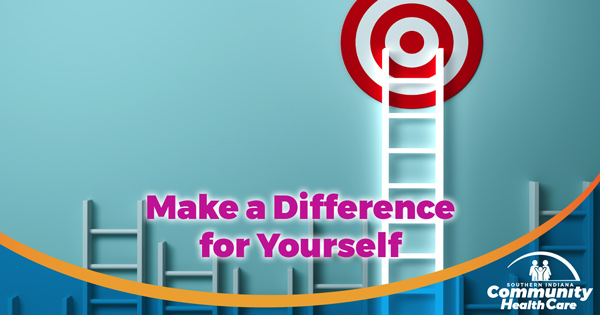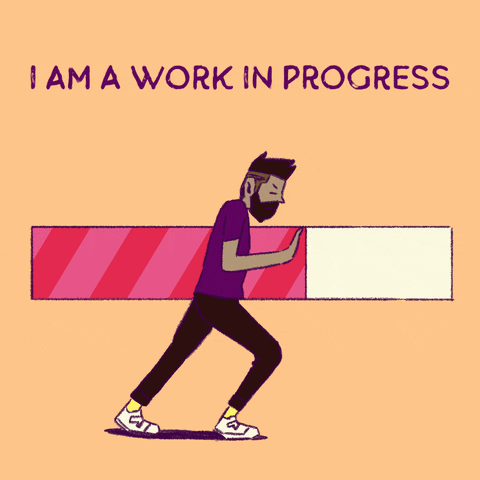Making A Difference For Yourself

A worthy resolution that many make is to take care of themselves in the new year. These resolutions take many forms: lose weight, get fit, advance one’s career, build friendships, and more.
That’s a worthy goal, but here’s a statistic to consider: did you know that anywhere from 35-43% of such resolutions fail before February? Perhaps that’s a little discouraging, but there is actually good news.
That leads to another question: How can you truly make a difference for yourself this year? The answer may not be what you think!
Before we answer that, let’s take a look at some common reasons why people make resolutions or self-commit to change, but then fall short. The most common – and the one we’ll focus on here – is that many people set unreasonable or unrealistic goals.
How can this be improved and lead to greater success?
If people set a goal to lose weight, or stop smoking, or other resolutions that require long-term commitment, it is important to be honest. We need to understand that the condition you are presently in probably took a long while to get there. Accordingly, time will likely be required for a commitment to change to fully succeed. That’s one reason why it’s important to set realistic goals.
And that word “change” is very important. Changing one’s behavior to reach a goal is often more challenging than one may think. For example, if you want to lose 20-30 pounds, that’s not going to happen overnight (at least not safely). It can be done if one changes how they eat over time and also if they engage with a spouse, friend or partner to help positively encourage them and keep them on track.
Working to make a difference for you physically – including eating more unprocessed foods (and especially fresh vegetables) and adopting a reasonable new habit of regular (and moderate) exercise – can also improve your overall energy, mental outlook, and feelings of well-being.
Let’s answer our questions. Here are some thoughts to consider in setting goals (and reaching them):
Progress, not perfection. There’s an old saying, “All I want for today is to be better than I was yesterday.” There’s truth in that. You may not perfectly meet your stated goal sometimes, but you can make progress. Remember, “Tiny changes produce remarkable results,” says James Clear, author of the popular book Atomic Habits.
Be reasonable. If we make a reasonable plan together with our resolution, our success rate will likely be higher. We all have good intentions when we start out to change, but we can set the bar too high.
Identify what you want to change. Eating healthy typically has a powerhouse impact over time. Many people in our region eat highly processed foods that are loaded with chemical additives and food coloring. These foods are easy to make and may seem tasty, but they have a cost. Making a decision to eat fresh vegetables and cut back on fatty fast food will likely have good short-term results, including losing weight and having more energy! But you have to make a choice and stick by it.
Don’t give up. Any change effort will run into bumps, even on Day Two. Don’t be overly self-critical. Celebrate your small wins and keep going!
Partner with a friend or family member. It’s easier to keep going (or to restart) when you have a friend or family member at your back. They can also positively help keep you accountable.
Get professional help. Sometimes goals to change – like quitting smoking – will benefit from some professional medical help. Don’t be afraid to ask!
This year, why not make a difference for yourself? Here’s to success in 2023!
A board-certified family physician, Dr. Curtis Thill has practiced medicine in the Crawford County region for more than 30 years.

